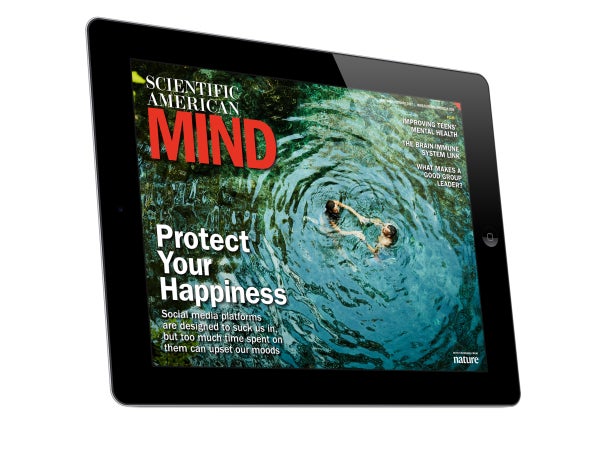On supporting science journalism
If you're enjoying this article, consider supporting our award-winning journalism by subscribing. By purchasing a subscription you are helping to ensure the future of impactful stories about the discoveries and ideas shaping our world today.
We all have the power to improve our lives, even a little bit. Research shows that two hours a week in nature can reduce stress and blood pressure. Maintaining an active social calendar prevents cognitive decline, well into old age. And for some, regular strenuous exercise appears to stave off depression as effectively as some pharmaceutical treatments.
In this issue, Scientific American column editor Daisy Yuhas spoke with Amanda Baughan, a researcher in computer and human interactions at the University of Washington about the ways that social media can detract from self-esteem and life satisfaction (see “Why Social Media Makes People Unhappy—And Simple Ways to Fix It”). It’s become clear that our digital interactions powerfully affect mood and quality of life, and so boundaries around social media are just as important as any self-care routine.
It’s been a joy bringing you the most important stories from Scientific American covering the remarkable human mind. We editors are continually evaluating how best to deliver the crucial coverage of these topics, and as we move forward, these PDFs you have enjoyed will become part of Scientific American’s core digital subscription and will no longer be delivered as separate publications. Keep an eye on your in-box for more details, but I think you’ll be excited for what’s coming, and you can always find as many fascinating articles on the topics that intrigue you most on our Web site and in our newsletters. Thanks for reading!
